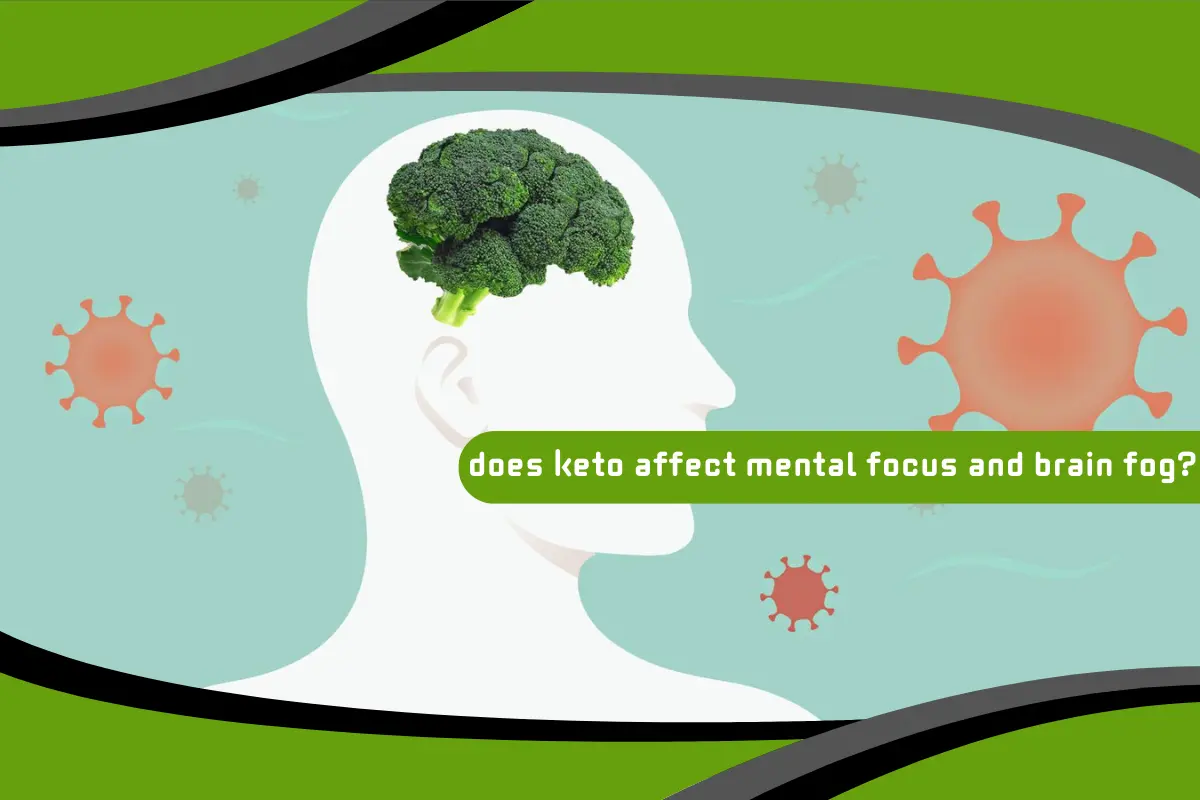The ketogenic diet, often referred to as “keto,” has gained widespread popularity not just for weight loss, but also for its impact on cognitive performance. While initially developed for managing epilepsy, keto’s effects on brain function have sparked interest among scientists and health enthusiasts alike. A central question many ask is whether keto improves mental focus and reduces brain fog—or if it worsens it. Understanding how shifting your body’s fuel source from glucose to ketones affects brain health is crucial for anyone considering this lifestyle.

What Is Brain Fog and Why Does It Matter?
Brain fog isn’t a medical diagnosis but a term used to describe symptoms like forgetfulness, poor concentration, mental fatigue, and lack of clarity. It can be caused by stress, poor diet, hormonal imbalances, or lack of sleep. For those seeking optimal productivity and sharp mental acuity, brain fog is a frustrating obstacle. The promise of keto offering clarity and focus has led many to explore this high-fat, low-carb diet. But how does the science support or contradict these claims?
How the Brain Uses Energy
The brain is an energy-intensive organ, consuming about 20% of the body’s total energy. Under a standard diet, glucose is the primary fuel. However, when glucose intake drops, such as in a ketogenic diet, the liver converts fats into ketone bodies—mainly beta-hydroxybutyrate (BHB), acetoacetate, and acetone—which can cross the blood-brain barrier and serve as an efficient fuel alternative. These ketones may influence brain activity differently than glucose, potentially altering mental focus and clarity.
Watch also: Is It Normal to Feel Tired on Keto? Understanding the Causes and How to Regain Your Energy
Transitioning into Ketosis and Cognitive Changes
When starting a keto diet, many people experience the “keto flu,” which includes symptoms like fatigue, headaches, and yes—brain fog. This is due to the body adapting to burning fat instead of carbs. While this phase is temporary, it can make mental tasks feel more difficult in the beginning. However, after adaptation, many report a surge in mental clarity and sustained energy. Understanding this transitional period is key to setting realistic expectations.
The Role of Ketones in Brain Function
Ketones are not just an alternative fuel—they also have neuroprotective properties. Beta-hydroxybutyrate, for example, acts as an antioxidant and reduces oxidative stress in the brain. This may help reduce inflammation and enhance cognitive performance. Additionally, ketones promote the production of brain-derived neurotrophic factor (BDNF), which supports learning, memory, and mood. These factors collectively support the idea that keto can improve mental clarity once adaptation occurs.
Blood Sugar Stability and Cognitive Focus
One of the most significant advantages of the ketogenic diet is stable blood sugar levels. High-carb diets often lead to glucose spikes and crashes, which can result in fluctuating energy and focus. Keto stabilizes blood sugar and insulin, which may prevent those afternoon energy dips and help maintain consistent cognitive performance throughout the day.
Mitochondrial Health and Brain Energy
Mitochondria are the powerhouses of cells, including neurons. Ketogenic diets have been shown to increase mitochondrial biogenesis and efficiency, meaning your brain cells can produce energy more effectively. This enhanced cellular function is associated with better concentration, reduced mental fatigue, and a lower risk of neurodegenerative diseases.
Inflammation and Cognitive Function
Chronic inflammation is increasingly recognized as a root cause of many neurological issues, including brain fog. Keto’s anti-inflammatory effects, due to reduced sugar intake and increased intake of anti-inflammatory fats like omega-3s, may protect the brain. Lowering systemic inflammation can improve cognitive performance and emotional regulation.
Neurotransmitters and Mood Balance
Ketosis may influence neurotransmitter balance, particularly GABA and glutamate. GABA is calming, while glutamate is excitatory. An imbalance can lead to anxiety or brain fog. Keto appears to enhance GABA activity while moderating glutamate, promoting a sense of calm and mental clarity. This balance supports better focus and mood stability.
Sleep Quality and Mental Clarity
Good sleep is essential for mental focus, and the ketogenic diet may impact sleep patterns in various ways. Some report improved sleep quality due to stabilized blood sugar, while others experience insomnia during early adaptation. Ensuring sufficient electrolytes and nutrient intake can help optimize sleep on keto, which in turn supports clearer thinking and reduced brain fog.
Watch also: How to Break a Weight Loss Plateau on Keto: Expert Strategies to Restart Fat Burning
Hydration and Electrolyte Balance
Electrolyte imbalances during keto initiation can contribute to brain fog. As glycogen is depleted, the body loses water and electrolytes like sodium, potassium, and magnesium. Without replenishing these, mental fatigue and cognitive sluggishness can occur. Addressing hydration and electrolyte needs is essential for maintaining focus on keto.
Gut Health and the Gut-Brain Axis
Emerging research highlights the link between gut health and cognitive function. A well-formulated keto diet rich in fiber from non-starchy vegetables and fermented foods can support a healthy gut microbiome. Since the gut-brain axis plays a role in mood and mental clarity, this is another way keto can indirectly enhance cognitive well-being.
Individual Variation in Cognitive Response
Not everyone experiences the same cognitive benefits on keto. Genetic factors, lifestyle, and existing health conditions all play a role. While many feel sharper and more focused, others may struggle with low energy or mental fatigue. Personal experimentation and medical guidance are often necessary to determine if keto supports your mental performance.
Long-Term Effects on Cognitive Performance
Long-term adherence to a ketogenic diet may offer neuroprotective benefits, especially in conditions like Alzheimer’s and Parkinson’s disease. Studies show that ketones can bypass impaired glucose metabolism in the brain and support cognitive function in aging populations. For healthy individuals, sustained mental clarity and reduced cognitive decline are potential long-term rewards.
Exogenous Ketones and Mental Clarity
Some people use exogenous ketone supplements to boost mental performance without full dietary restriction. These can elevate blood ketone levels temporarily and may provide a short-term focus boost. However, they don’t offer the same long-term benefits as dietary ketosis and should be used strategically, not as a replacement for proper nutrition.
Nutrient Deficiencies and Cognitive Risks
A poorly formulated keto diet lacking in key nutrients can backfire, leading to brain fog rather than mental clarity. Vitamins like B-complex, magnesium, and omega-3 fatty acids are essential for brain health. It’s important to ensure a nutrient-dense diet, especially when limiting food groups, to support optimal mental performance.
Keto and ADHD or Cognitive Disorders
Some anecdotal evidence and preliminary studies suggest that keto may help manage symptoms of ADHD or cognitive disorders by improving attention span and reducing impulsivity. While more research is needed, the diet’s effects on neurotransmitters and energy regulation make it a promising avenue for cognitive health interventions.
Physical Activity and Mental Performance on Keto
Exercise has a well-documented impact on cognitive health, and combining physical activity with a ketogenic diet may enhance mental benefits. Aerobic and resistance training stimulate BDNF production and improve blood flow to the brain. Together with ketosis, this can create a powerful synergy for focus and mood.
Fasting, Keto, and Mental Sharpness
Intermittent fasting is often paired with keto, and together they may amplify mental clarity. Fasting increases ketone production and triggers cellular repair processes like autophagy. Many report heightened focus and alertness during fasting windows, making this combination attractive for those seeking peak cognitive function.
Final Thoughts on Keto and Brain Health
The ketogenic diet has the potential to significantly impact mental focus and reduce brain fog—particularly once the body adapts to ketone metabolism. While the initial adjustment period can be challenging, the long-term benefits for cognitive stability, mood, and clarity are promising. However, success with keto requires personalized adjustments, nutrient awareness, and lifestyle balance.
Watch also: How to Create Your Own Keto Meal Plan: Expert Guide to Custom Low-Carb Meals



No comment